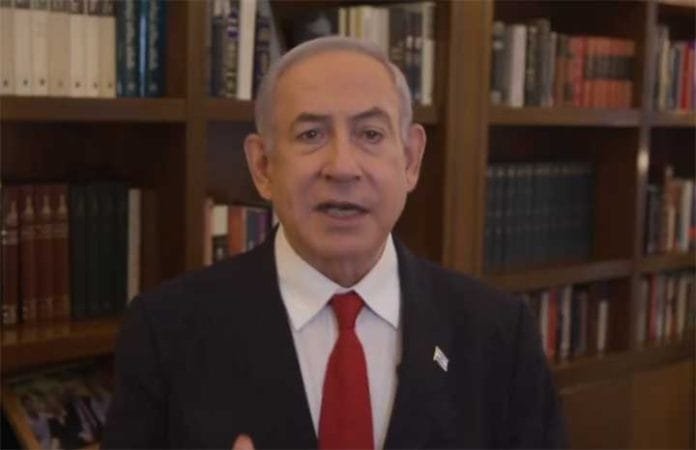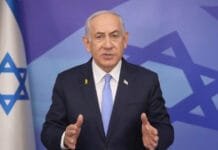Israel Escalates Offensive on Hamas Strongholds
On Sunday, Israeli Prime Minister Benjamin Netanyahu firmly defended the country’s expanded military operations in Gaza, stating that Israel has “no choice but to finish the job” and completely defeat Hamas. The Israeli Security Cabinet had earlier directed the demolition of Hamas strongholds not only in Gaza City but also in central refugee camps and the Muwasi area, signaling a deepened offensive against the militant group.
This latest escalation comes as Israel faces mounting criticism both domestically and internationally. Opposition voices have grown louder over the humanitarian toll of the ongoing conflict, particularly regarding the planned attacks on densely populated refugee camps that shelter more than 500,000 displaced Palestinians, according to the United Nations.
UN Highlights Humanitarian Crisis in Refugee Camps
The United Nations has expressed grave concern over Israel’s preparations for expanded strikes in the camps, warning that the humanitarian conditions are deteriorating at an alarming rate. While these camps were not specifically named in Israel’s official announcement on Friday, they remain at the center of growing fears for civilian safety.
Ramesh Rajasingham, a top UN humanitarian official, painted a grim picture, stating that Gaza has moved beyond a crisis of starvation into a famine. He emphasized that the situation is “extremely dire” and that humanitarian agencies are running out of ways to describe the suffering of civilians caught in the crossfire.
Netanyahu Engages with Trump, Secures U.S. Support
In a significant diplomatic development, Prime Minister Netanyahu held direct talks with U.S. President Donald Trump regarding the upcoming military operations in Gaza. Netanyahu expressed his gratitude to Trump for offering full political support during this critical phase of the conflict.
Rejecting reports of widespread hunger in Gaza, Netanyahu told foreign media — ahead of an emergency UN Security Council meeting — that “there is no starvation in Gaza” and reaffirmed that Israel’s objective is not to occupy Gaza, but to liberate it from Hamas’s control. He also stated that Israel intends to increase the number of humanitarian aid distribution sites in the territory to ensure civilians receive essential supplies.
Hamas Strongly Rejects Israeli Claims
In his remarks, Netanyahu once again blamed Hamas for the dire conditions faced by Palestinians, alleging that thousands of armed terrorists remain active within the group. He accused Hamas of oppressing the Palestinian population, preventing them from achieving freedom and security.
Hamas officials swiftly dismissed Netanyahu’s statements, rejecting the narrative that they bear responsibility for the humanitarian catastrophe unfolding in Gaza. The group accused Israel of using such claims to justify what it describes as collective punishment and disproportionate military action.
U.S. Defends Israel at the UN Security Council
At the UN Security Council emergency session, the United States openly defended Israel’s right to take decisive military measures for its security. The U.S. dismissed accusations of genocide in Gaza as baseless and reaffirmed its commitment to Israel’s security.
Other member states, however, voiced sharp criticism. China condemned what it called the collective punishment of Gaza’s civilian population, while Russia warned that unchecked escalation could lead to a dangerous surge in regional hostilities.
Germany Halts Certain Arms Exports to Israel
In another sign of shifting international dynamics, Germany — one of Israel’s closest allies — announced a suspension of military equipment exports that could potentially be used in Gaza. German Chancellor Friedrich Merz stated that Berlin remains committed to its historic friendship with Israel but has decided to pause certain arms supplies amid growing global criticism of Israel’s military campaign.
Netanyahu acknowledged the pause but insisted that Israel will continue its operations regardless of international pressure, emphasizing that defeating Hamas is essential to ensuring long-term peace and security for Israel’s citizens.
Global Reactions Highlight Deep Divisions
The ongoing military operations have deepened divides among world powers. While Washington continues to shield Israel diplomatically, many European and Middle Eastern nations are calling for an immediate ceasefire.
In the Arab world, leaders have condemned Israel’s actions, accusing it of intensifying the humanitarian disaster. In Europe, governments are increasingly torn between strategic alliances with Israel and mounting public demands to address civilian suffering in Gaza.
Humanitarian Agencies Warn of Famine-Level Conditions
Aid organizations on the ground have reported severe shortages of food, water, and medical supplies in multiple parts of Gaza. The UN’s famine warning has added urgency to calls for safe humanitarian corridors and a halt to bombardments targeting populated areas.
Despite Israel’s assurances that it will expand aid delivery, relief agencies argue that the scale of destruction is making it nearly impossible to reach all those in need. Hospitals remain overwhelmed, with medical staff struggling to treat the wounded due to shortages of essential equipment and electricity.
Netanyahu’s Strategic Messaging to the World
By rejecting accusations of starvation and emphasizing “liberating Gaza” rather than occupying it, Netanyahu is attempting to frame the military campaign as a necessary step toward Palestinian freedom. This narrative seeks to counter growing international outrage and shift blame squarely onto Hamas.
Netanyahu’s communication strategy also hinges on leveraging strong support from the United States, particularly from President Trump, to counterbalance European and UN criticism.
The Road Ahead: Intensified Military Campaign Likely
Given the Security Cabinet’s directives, the coming weeks are expected to see expanded Israeli strikes on Hamas-controlled areas, including strategic refugee camp zones. Israel insists that eliminating Hamas’s military infrastructure is the only path to lasting stability.
However, with international patience wearing thin and humanitarian warnings reaching crisis levels, the political and diplomatic cost of the operation is likely to rise. The conflict’s trajectory will depend not only on the battlefield but also on how effectively Israel navigates the global pressure for de-escalation.
Conclusion
As the Gaza conflict enters a new and more dangerous phase, Israel’s leadership faces a delicate balancing act — sustaining military pressure on Hamas while confronting escalating humanitarian concerns and mounting diplomatic backlash. Netanyahu’s ability to maintain crucial U.S. backing, despite increasing criticism from traditional allies like Germany, will play a decisive role in shaping the outcome of both the war and Israel’s standing on the global stage.
















